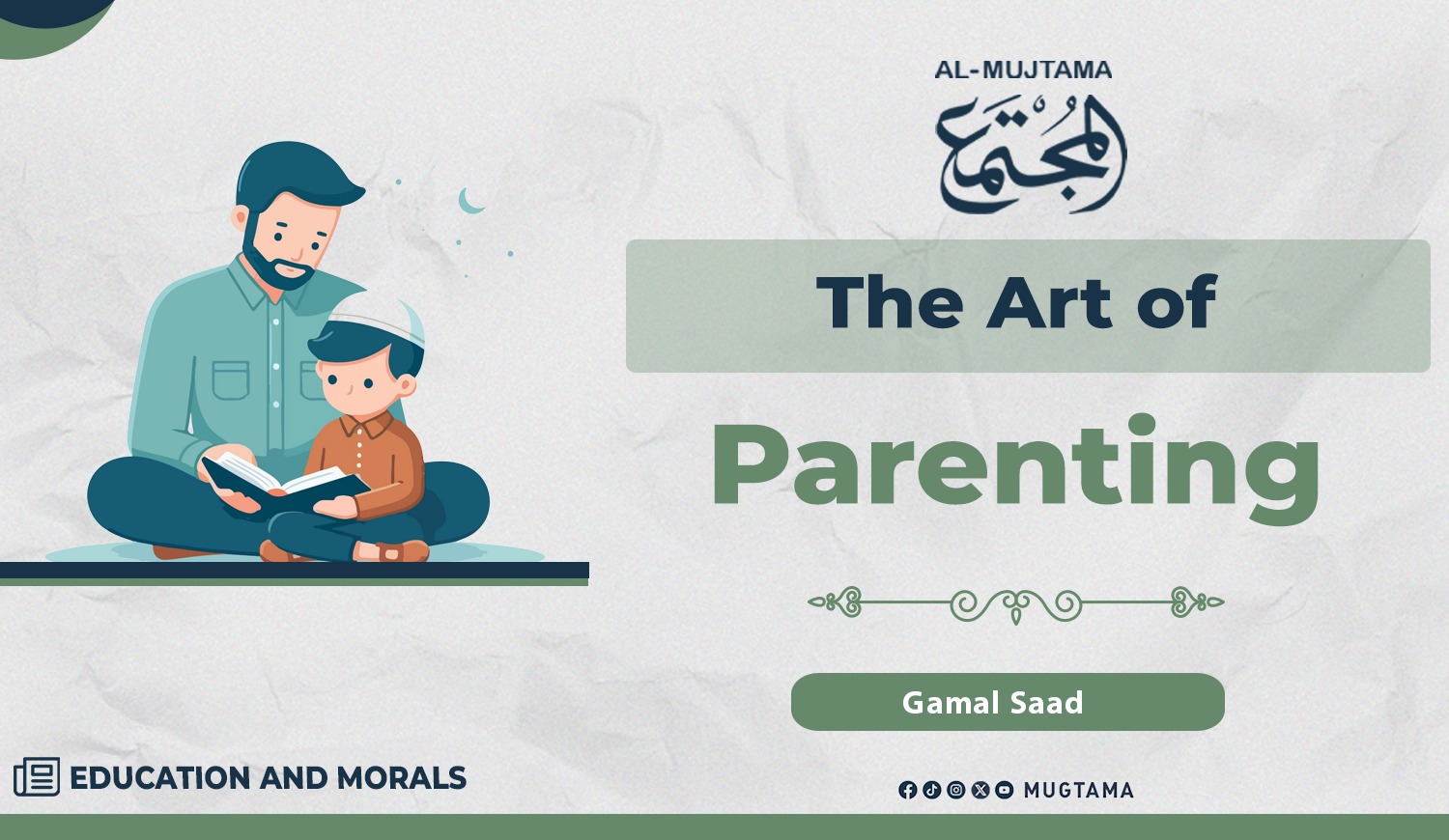How to Cultivate Righteous Role Models for our Children?

A good role model is the foundation of
building a strong family, which in turn is the cornerstone of a cohesive and
righteous society. However, the family and value system today suffer from the
absence of exemplary figures and moral models, posing a real threat to
individuals, families, and society as a whole.
So how do we cultivate righteous role
models for our children? What are the characteristics of a good role model? And
what is the role of parents in this regard? These are questions this report
seeks to answer.
Dr. Gamal Shafik, Head of the Department of
Child Psychology at Ain Shams University, states that a role model is the core
of family stability. Fathers serve as role models for boys, and mothers for
girls. Therefore, the behavior and relationship of parents directly reflect on
the psyche, behavior, and ethics of their sons and daughters. "I am not
exaggerating," says Dr. Shafik, "when I say that most children are
revised copies of their parents."
The Age of Open Skies
Dr. Shafik warns, in his statement to Al-Mujtama‘
magazine, that the age of open skies, the internet, and mobile phones has
pulled the rug from under family intimacy. It has significantly diminished the
parents’ influence as effective role models in shaping children's
personalities, who are now heavily inclined to explore and follow new
technologies of communication. Social research confirms the declining role of
the family in presenting good role models—an alarming threat to family harmony
and social peace.
Internet, Phones, and Satellites Have
Weakened the Family's Role in Upbringing
Despite this, according to Dr. Shafik, the
family can still reclaim its role and create good role models for their sons
and daughters. This can be done by the parents adhering to the noble morals
promoted by religions and exemplified by the prophets and messengers—such as
honesty, trustworthiness, justice, altruism, love for goodness, and aligning
good speech with righteous actions.
Sound Upbringing
Dr. Mona Kamal, Professor of Sociology at
Ain Shams University, stresses the importance of good role models in raising
future generations amidst the flood of Westernization that erodes values,
morals, traditions, and virtues. She explains that children are innately
inclined to imitate and emulate those around them—especially their parents, who
are the closest to them. Therefore, parents must ensure they and their
surrounding environment offer exemplary conduct.
She adds, in her statement to Al-Mujtama‘,
that crafting a role model is one of the most demanding educational tasks in
our era—an age of civilizational and religious conflict. Parents must present a
good example in both word and deed, commit to performing acts of worship, and
involve their children in attending mosques and participating in charitable,
cultural, and artistic activities that align with their age and interests. They
must also maintain a balance between strictness and leniency. As the saying goes:
“Do not be too rigid lest you break, nor too soft lest you be squeezed.”
Moderation is best in all affairs of life.
One of the Heaviest Educational Endeavors
Today
Dr. Kamal urges parents to identify their
children’s strengths and weaknesses, avoid actions that lead to frustration or
undermine self-confidence, and teach them how to control their emotions in
crises or when facing bullying. She emphasizes the importance of helping
children distinguish between right and wrong behavior, encouraging them to
maintain family ties, treat neighbors and friends kindly, respect others, stay
organized and clean, act responsibly, and bear the consequences of their
actions.
Religious Guidelines
Dr. Ramadan Hassan, Dean of the Faculty of
Islamic and Arabic Studies in Cairo – Al-Azhar University, explains that the
lives of the prophets—especially the biography of our Prophet ﷺ—provide
models for good role models. He points to Allah’s description of His Messenger:
“And indeed, you are of a great moral character” (Surah Al-Qalam, 4).
Dr. Hassan calls for educational and
awareness programs organized by religious, social, and cultural institutions
for those about to marry. These should aim to equip them with religious
knowledge and teach them how to prepare themselves to become role models for
their future children. He also emphasizes the importance of wisely choosing
friends and regulating the use of social media and satellite channels.
Upbringing Is a Continuous Process Requiring
Planning and Knowledge
He continues: Creating role models is a
continuous process that requires planning and effort—it’s not random. The
fruits of such work will be reaped by the individual, the family, and the
entire nation. Since the family is the foundational unit of society, parents
must be aware of their role as examples and their responsibility before Allah
for their children. The Prophet ﷺ said: “Each of you is
a shepherd and each of you is responsible for his flock. The imam who is over
the people is a shepherd and is responsible for his flock; a man is a shepherd
in charge of the inhabitants of his household and he is responsible for his
flock; a woman is a shepherdess in charge of her husband’s house and children
and she is responsible for them; and a man’s slave is a shepherd in charge of
his master’s property and he is responsible for it. So each of you is a
shepherd and each of you is responsible for his flock.”
(Agreed upon)
Dr. Hassan advises that children be taught
religion with ease, patience, and wisdom. He cites Allah’s command to His
Prophet and the believers: “And enjoin prayer
upon your family [and people] and be steadfast therein.” (Surah Ta-Ha, 132), and “O you who have believed, protect yourselves and your
families from a Fire…” (Surah
At-Tahrim, 6).
-------------------------------------------------------------










